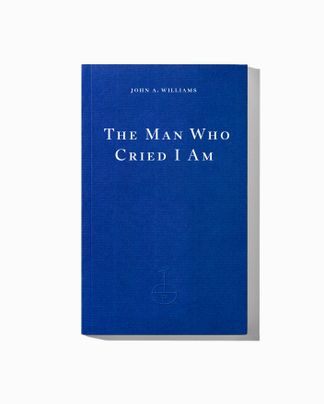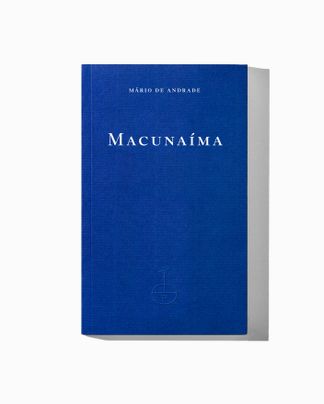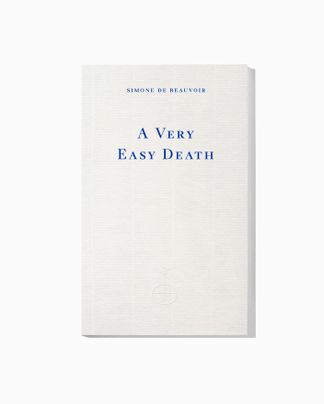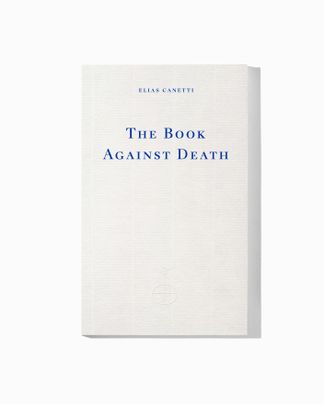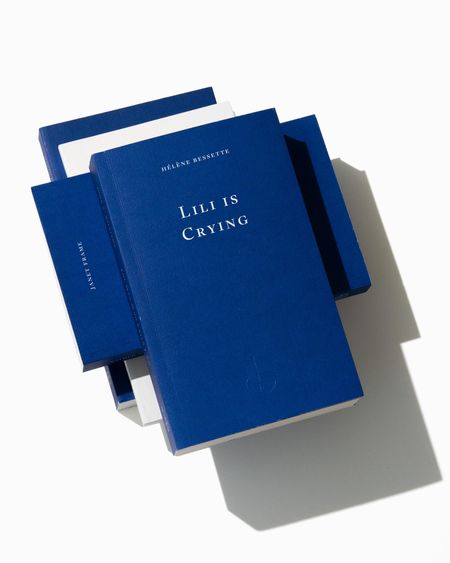Toby Withers, a young man with epilepsy, leaves New Zealand after the death of his mother. While on board a ship to England, he meets Zoe, a middle-aged woman looking for a life of meaning and Pat, an Irishman who claims to have many friends but treats people with carelessness. Alike in their alienation, all three embark on a new life in London, piecing together an existence in the margins of the urban world. The Edge of the Alphabet, the third novel by Janet Frame, one of New Zealand’s foremost writers of the twentieth century, is a piercing, startlingly strange work about identity, the post-colonial experience and the search for connection in a lonely world, published here on the centenary of her birth with a new foreword by Catherine Lacey.
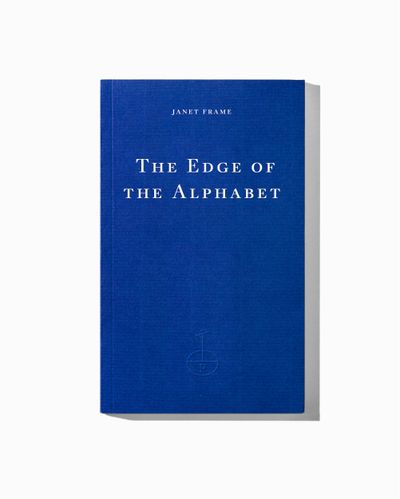
The Edge of the Alphabet
Introduction by Catherine Lacey
Fitzcarraldo Classic No. 6 | French paperback with flaps, 296 pages
Published 29 August 2024
The Edge of the Alphabet
Introduction by Catherine Lacey
I .
Man is the only species for whom the disposal of waste is a burden, a task often ill-judged, costly, criminal – especially when he learns to include himself, living and dead, in the list of waste products. The creator of the world did not employ a dustman to collect the peelings of his creation.
Now I, Thora Pattern (who live at the edge of the alphabet where words like plants either grow poisonous tall and hollow about the rusted knives and empty drums of meaning, or, like people exposed to a deathly weather, shed their fleshy confusion and show luminous, knitted with force and permanence), now I walk day and night among the leavings of people, places and moments. Here the dead (my goldsmiths) keep cropping up like daisies with their floral blackmail. It is nearly impossible to bribe them or buy their silence. They are never finished with trinkets pockets lockets gold watches that swing on giant chains against their dust-filled hearts. They leave their marks like fly-specks upon my life. Why do they spatter my vision with the excrement of the past, buzz in my head, seek the snow-crystals of desire?
I made a journey of discovery through the lives of three people – Toby, Zoe, Pat.
His feet had finished bleeding. They were withered now. He thought they were sea-anemones or dried oak-leaves or burst pinecones from outside, where the magpies garbled A-Wimbledon-a-Wombledon-a-fourteen-miles, and a bush-wren obsessed the leafy places with a sound light as poplar-cotton or purple thistle-head, a tiny piping jig that betrayed more than sight or statistic the vulnerability of the instrument that produced it.
Yes, outside where the hawks fly.
Toby walked carefully, a saint or politician, between the layers of knives. He walked on the sea too, giving the offal of the past to the searching grey and white birds that rose and fell in the sky, like supplementary breathings of the tide.
Toby was dreaming of the Lost Tribe.
He was a tree. He was sitting on the bin in the corner at home. His arm was shaking, not a human arm, but a branch with twigs for fingers and scabs and cuts where age had scarred the bark. He felt so strange, as if he were an entire forest, with the Lost Tribe inhabiting him as if his head were a secret gully somewhere up-country, just below the snowline, before the clumps of tussock and snow-grass begin to shine in the wind and sun.
So his withered feet dropped off, like dead twigs. He dived now and swam deep in the curving waves until he reached the bed of the ocean where all forms were of shadowy dreams and ribboned sleep, and the sun was only a green inkling, an intuition of light in the brain.
The funeral was over. Toby’s father was listening, listening, and opening and shutting doors. Toby said to his dead mother, You old witch how I loved you with the Latter Days waving like maggots in your entrails and your targeted breasts hitched like moons in the sky, you old witch with your nose meeting your chin, your Blaikie nose, your Dunwoody chin.
‘If you ever go overseas, Toby, visit the places where your ancestors lived. I have their chin and their nose, registered parcel of history delivered to the womb’s door. And, Toby, Toby, sit in the old churchyard where the yew trees grow and where are buried John Blaikie, Master of Model Training College, Evan Dunwoody, Minister to the King, Dr Charles Gibbs, F.R.C.S….’
You pegged your ancestors on the line between the work-socks and the blankets and they bubbled with cleanness and kicked in the breeze and were slapped in the face by the oak leaves that got up one morning to wash their face in death. Oh Dolly Dolly Varden in pleated china with the dust in the cracks and the chipped eyes. I did not have dolls. My sisters had dolls blushed pink with hollow bellies and patent bellybuttons and limbs held by a knot of elastic, and the house was littered with amputations lying in corners by spiders’ webs and on ledges with empty bottles and beetles resting between engagements, and under the house near the blocks of Waimaru stone and the lank sleepless potato flowers looking for the light. And I, Toby, travelled a long way in my dream, and when I came to the pond and the patch of babies growing up like little green frogs from the bank, with leaves sheltering them as they shelter flower-buds, I, the tramp, the epileptic, drew my bundle of sharp stakes like the manuka my father used as religious instruction to discipline the beans in their search for heaven
my father the curate
so I pierced the little frog-heads and sat down and cried because my mother with her Blaikie nose and Dunwoody chin was dead.
(…)
‘Her writing is engaging and idiosyncratic – full of a character that proves that the best way to strike deep with the reader is not to do what everyone else is doing, but to grasp your distinctive vision of the world and hammer it hard…. [T]hat is the joy of books like this, out of print for 60 years, but now roaring into view, stronger and brighter than ever. It’s good to have it back.’
— John Self, The Times
‘Janet Frame’s prose is a highly volatile material. Words, sentences, paragraphs behave like mercury on the page, running this way and that, forming new shapes and smears from one silvery, trembling blob…. Frame’s fiction … made not of some stale conception of verisimilitude but of the shifting stuff of sentences, can take us to a borderless, boundless anywhere.’
— Kirsty Gunn, Times Literary Supplement
‘It is the most Woolfian of Frame’s work: with intense, often dissociated separate monologues and repeated imagery of light, sounds and shapes evoking The Waves, and the long, turbulent journey by sea of Woolf’s first novel, The Voyage Out.’
— Catherine Taylor, Guardian
‘Intensely personal, her writing is always spiralling in on itself, towards the condition of myth, and yet it nails the moment, pins down experiences so fleeting that others would never grasp them. What eludes ordinary language, she can capture in the extraordinary argot of her imagination.’
— Hilary Mantel
‘She is a singular writer. No one is quite like her.’
— Eleanor Catton, author of The Luminaries
‘It is a revelatory portrait of the sometimes unbearable unease of being a human, wrapped up in a consummately playful metafiction.’
— Ellen Peirson-Hagger, New Statesman
‘Frame’s writing … frequently returns to the strange, self-doubling rituals of normalcy, required of us to find so-called connection. Frame is invested in those who fail such performances, and who sometimes reach a type of multiplicity far past them. Her sentences, always at the shore of some great nothingness, have the intricacies and echoes of a conch shell…. Frame points us away from the sturdy book in our hands, toward the flimsy, the abandoned, the scrapped and scraped, the reflective, the ribboned. Toward stories that are nothing but a title, and masterpieces that can fit in the interior pocket of a handbag. There, she says, look. You almost missed it. Look what she has made.’
— Audrey Woolen, New Yorker
‘Frame’s writing is often compared to Faulkner’s, and her family history reads like a Southern Gothic novel. Yet Frame can be an extraordinarily cheerful, funny writer. Language was a source of continual revelation… The Edge of the Alphabet is about trash, debris, dreams, the incommunicable and the excluded.… The proposition Frame seems to be making is that marginality means semantic exile too; vivid, broken images are her characters’ alternative vehicles for communication.’
— Lucie Elven, London Review of Books
‘Frame achieved that supremely difficult task of finding a voice so natural it feels almost as if it were not written.’
— Jane Campion, Guardian
‘[Frame] is endowed with a poet’s imagination, and her prose has beauty, precision, a surging momentum, and the quality of constant surprise.’
— The Atlantic
‘[Frame] meditates upon the disrelation between inner and outer landscapes, mental and physical colors, cruelty and the withdrawal from cruelty, the experience of chaos, of inexplicable evils, of broken perceptions.’
— New York Times
‘She has shown, so quietly, a mastery of the English language which dazzles one beyond ordinary praise.’
— Naomi Mitchison
‘Everything she presents is illuminated and thrown into sharp focus by the limpid clarity of a highly individual vision; she can be detached and passionate at the same time.’
— Fleur Adcock
Praise for An Angel at My Table
‘One of the great autobiographies of the twentieth century … A journey from luminous childhood, through the dark experiences of supposed madness, to the renewal of her life through writing fiction. It is a heroic story, and told with such engaging tone, humorous perspective and imaginative power.’
— Michael Holroyd, Sunday Times
Janet Frame (1924–2004) was a celebrated New Zealand author of novels, short stories, poetry and the three-volume autobiography An Angel at My Table that was adapted for cinema by Jane Campion. Janet Frame won numerous local and international literary prizes including the Commonwealth Prize for Best Book. She was an Honorary Fellow of the American Academy of Arts and Letters and held two honorary doctorates. She was awarded a CBE in 1983 and in 1990 she was made a Member of the Order of New Zealand, the country’s highest civil honour. Her work is in print around the world and has been translated into many languages.
Catherine Lacey is the author of five books, most recently the novels Biography of X and Pew. Her honours include the Brooklyn Public Library Book Prize, a Guggenheim Fellowship, a Whiting Award, the Young Lions Fiction Award, and a fellowship from The Dorothy and Lewis B. Cullman Center for Scholars and Writers. Her first work of non fiction, The Möbius Book, is forthcoming in 2025.

